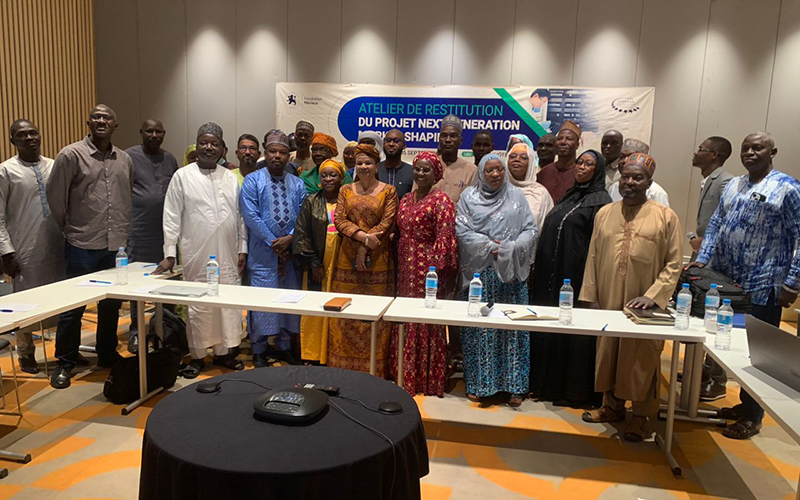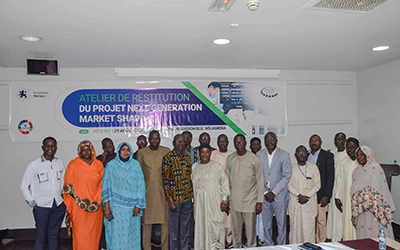
Workshop to present the results of the project in Niger
How are Niger and Chad progressing in their fight against tuberculosis? What tuberculosis diagnostic tools will they need in the coming years? How can diagnostic coverage be guaranteed for all tuberculosis cases in both countries? The Next Generation Market Shaping project was set up in these two countries to answer these questions. Its goal was to support national programs to combat tuberculosis in both countries by assessing their level of preparedness and estimating their demand for new diagnostic tools, including rapid molecular detection tools in outlying health centers.
To implement the project, the Mérieux Foundation drew on data from the national tuberculosis programs of both countries, including data from diagnostic network analysis and optimization work (DNA/DNO), and on discussions with key players in the health system. This analysis involved evaluating the need to introduce new diagnostic technologies as near as possible to the point of care, and suggesting new avenues for integrating them into existing diagnostic networks, thus favoring a decentralized approach to diagnostics.

Participants in the project feedback workshop in Chad
The project developed a forecasting model to estimate the total number of WHO-recommended diagnostic tests that would be required in both Niger and Chad to guarantee universal coverage of all patients with suspected tuberculosis each year from 2026 to 2029, compared with the volume currently available in each country. These results were supplemented by proposed scenarios for gradual deployment over the same period, helping to inform strategic planning for national programs at all levels of the health system.
These forecasts were also designed to support future national procurement plans in identifying new opportunities or requirements for funding in the fight against tuberculosis. They will encourage discussions at global level to promote easy, affordable access to diagnostic innovations, while ensuring that changes to market regulations meet countries’ needs regarding the fair and swift introduction of innovative diagnostic tools.
About the Next Generation Market Shaping program
This Global Fund program, set up in 2022, aims to reduce barriers to health product availability and affordability, improve the responsiveness and timeliness of services and health product delivery, and promote resilient and sustainable supply chains.
In the case of Niger and Chad, the Global Fund appointed the Clinton Health Access Initiative with the Mérieux Foundation as its implementation partner for the project.
Diagnosis: an essential step in the fight against tuberculosis
Although around 10.8 million people were affected by tuberculosis worldwide in 2023, almost 2.6 million of them, over 24%, did not receive a diagnosis. Access to diagnosis remains a key factor in identifying and treating these patients, who are invisible to follow-up and treatment programs. Diagnosing these missing cases is a challenge because of the high cost and limited accessibility of molecular tests.
In Niger, only 25% of notified cases were covered by rapid molecular diagnostic tests in 2024. In Chad, the figure was 45% in 2023.
The WHO recommends introducing low-cost rapid molecular diagnostic tests. These tests are a highly advantageous in terms of the regulatory requirements and logistical needs inherent in their use (electricity, air conditioning etc.).
Diagnostic innovations near the point of care provide a major opportunity to decentralize tuberculosis diagnosis towards the peripheral levels of the health system, while shortening the wait for results.
This is why the Mérieux Foundation supports the development of diagnostic innovations to provide a better response to the diagnostic and follow-up needs of low- and middle-income countries. In particular, it provides its assessment expertise to the most severely affected countries.
